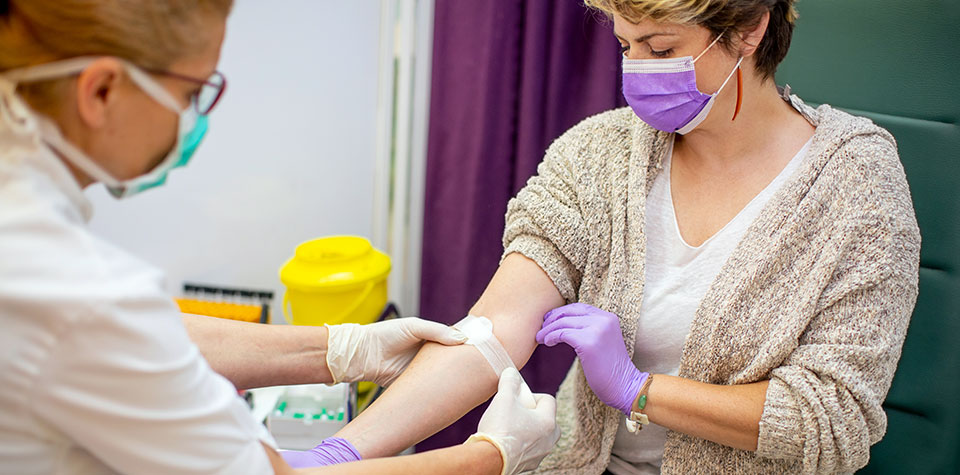
How to Become a Phlebotomist
Phlebotomists play an integral role in medical treatment, testing, research, blood donation collection and more. If you have a caring, compassionate manner and are comfortable working with needles and blood, phlebotomy is an in-demand field where you could find rewarding employment. Best of all, you can obtain the required education from Cambridge in less than three months.
What Does a Phlebotomist Do?
Phlebotomists draw blood for tests and blood transfusions, conduct or assist in research, and handle or assist in blood donations. Often, they help patients understand why blood tests are being conducted and, equally important, phlebotomists try to provide comfort and ease people’s minds about having their blood drawn.
Many patients are anxious and uncomfortable about needles and blood, so phlebotomists should have a calm, understanding disposition. In addition to drawing blood, phlebotomists are often responsible for:
- Measuring and recording blood pressure, oxygen levels and pulse
- Updating patient records
- Sterilizing and preparing equipment
- Sending blood samples out for testing
Phlebotomist Pay and Job Outlook
According to the Bureau of Labor Statistics (BLS), the median salary for phlebotomists in 2020 was $36,320, with the highest earners pulling in nearly $51,000. Pay tended to be higher in locations with higher costs of living.
Phlebotomists are in high demand. BLS says employment of phlebotomists is expected to rise 22% from 2020 to 2030, which is nearly three times as fast as most occupations.
How to Become a Phlebotomist: Education and Exams
If you are interested in becoming a phlebotomist, here are the steps you will most likely take.
- Complete high school: Students will need to have a high school diploma or GED in preparation for the next step.
- Complete an accredited phlebotomy program: You will need a diploma/certificate showing that you’ve finished a phlebotomy education program. The Cambridge phlebotomy technician certificate program can be completed in 11 weeks and focuses on the information and skills you need to prepare for exams and obtain employment.
- Pass the National Healthcareer Association (NHA) exam: After completing the 11-week Cambridge program, you are eligible to take the NHA exam. Passing the exam makes you a Certified Phlebotomy Technician. The exam has 100 questions. Your Cambridge education will prepare you for exam success.
- Find a job and maintain certification: Cambridge’s career advisors can help you find employment in many different settings. Phlebotomists can work in hospitals, laboratories, outpatient centers, doctor’s offices, long-term care centers and more. Once you are working, don’t forget to recertify with the NHA every two years.
Prepare for a Phlebotomy Career in 11 Weeks
If you enjoy a fast-paced work environment with lots of interaction with patients, a phlebotomy career could be a great fit. Earn your phlebotomy certificate from Cambridge in just 11 weeks, take your exam, and watch your career grow.
To talk about the program with an education advisor, please call 877-206-4279 or send us a message and we’ll reach out to you.
More on phlebotomy

